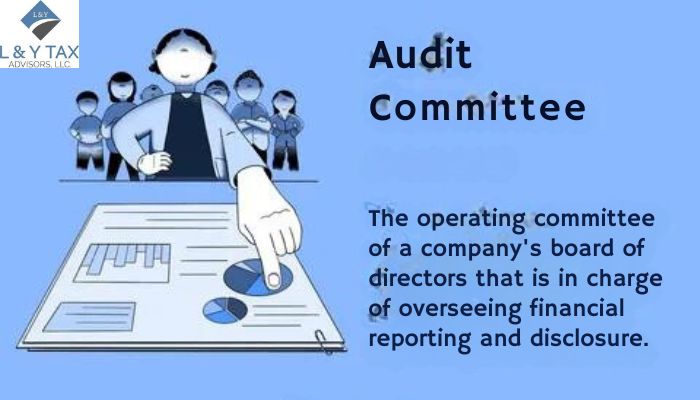
What is Audit Committee?
Publicly traded corporations must provide honest and transparent financial reporting to their investors. For this purpose, the audit committee performs its duties to safeguard your firm’s finances. But what is audit committee and how does it work?
The audit committee serves as the board of directors. It is responsible for financial reporting and disclosure. Our taxation experts help you examine this crucial body’s role, significance, and objectives.
Composition for Independence
The committee comprises independent, non-executive directors, at least one of whom has experience in finance. The chairperson should ideally be a Certified Public Accountant (CPA) to offer the required accounting expertise.
Someone with suitable financial skills or a retired banker may take this position. This focus on independence guarantees the committee’s objectivity in carrying out its oversight responsibilities.
What is Audit Committee?
The audit committee is a board of directors subcommittee that is specifically responsible for managing a company’s financial reporting and disclosure procedures.
Its main goal is to protect the accuracy and integrity of financial statements made available to the public and investors.
For their stock market listing, all publicly listed firms in the United States must have a certified audit committee.
How an Audit Committee Works?
The company’s internal and external auditors work closely with the audit committee to perform their duties. They check the work done by the auditors to ensure no conflicts of interest and that the financial records are correct.
At least four meetings a year are scheduled to examine the most recent audit report and handle any new concerns that may arise. To promote openness, the committee also keeps lines of communication open with the controller and CFO.
Click here to read about the IRS & state audit representation.
Proactive Problem-Solving Beyond the Books
The committee’s duties go beyond only examining the financial accounts. They:
- Supervise regulatory compliance
- Keep a close eye on accounting procedures
- Confer with management on risk management tactics
This all-encompassing strategy aids in the early detection of any issues. The committee has the power to launch special investigations. It has the support of the internal audit team when red flags appear, such as dubious accounting techniques or employee wrongdoing.
Transparency Through Disclosure
The company’s SEC Form DEF 14A, or proxy statement, easily provides information on the audit committee’s membership and duties. This publication helps investors better appreciate the committee’s responsibility in guaranteeing financial accountability and transparency.
Audit Committee Hazards
In the complicated corporate climate of today, audit committees have several obstacles to overcome. Vigilant supervision is necessary for large organizations with complex worldwide operations.
New emergent dangers, such as cyberattacks, introduce an additional degree of complexity. Realizing these difficulties, audit committees are paying more attention to cybersecurity to protect sensitive financial data.
The Bottom Line
Knowing what is audit committee helps you safeguard investors’ interests. This team significantly contributes to a firm’s financial health and general governance. It guarantees financial reporting transparency, monitors compliance, and actively manages risk.
Read More: How to audit a company


